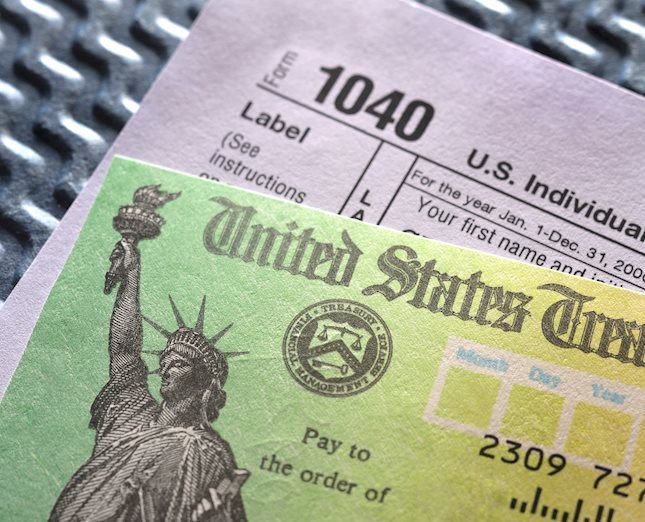- AUD/USD holds lower ground after snapping a five-week downtrend at the latest.
- US dollar benefits from strong employment figures, upbeat Treasury yields.
- RBA Minutes reiterate cautious optimism, China trade numbers came in mixed while US Senators progress over infrastructure spending bill.
- China inflation data, covid and stimulus updates will be the key for Asia amid light calendar.
AUD/USD kick-starts the trading week around Friday close of 0.7355, keeping the 15-pip range at the lower end after declining the most in a week. The Aussie pair slumped the previous day after the US dollar cheered strong employment numbers. It’s worth noting that the covid woes and stimulus chatters exert additional downside pressure on the quote ahead of today’s China inflation data.
July’s employment statistics from the US buoyed the US Dollar Index (DXY) on Friday. The headlines Nonfarm Payrolls (NFP) rose by 943,000 versus June's increase of 938,000 (revised from 850,000) and surpassed the market expectation of 870,000. Further details revealed that the Unemployment Rate declined to 5.4% from 5.9% in June and the Labor Force Participation Rate improved modestly to 61.7%.
The strong jobs report rejected the market fears that the Delta covid variant gradually tames the economic recovery. The optimism favored the US dollar the most as the policymakers are also on the table to unveil a multi-billion dollar worth of infrastructure spending.
As per the latest updates from Reuters, “The Senate convened at noon EDT (16:00 GMT) and was expected to hold two procedural votes on Sunday evening, unless Republicans and Democrats can reach an agreement on amendments to the package that was the result of months of bipartisan talks.”
In addition to the strong employment numbers and stimulus talks, virus woe also underpins the greenback’s safe-haven demand. As per the latest coronavirus numbers from Australia, the total daily infections jumped to the fresh high since mid-August 2020 with 363 cases for Friday, before easing to 292 numbers for Saturday. On the other hand, “New daily coronavirus cases in the United States have hit a six-month high, with the seven-day average reaching nearly 95,000. That rate is five times higher than it was less than a month ago,” per Reuters’ piece published on Sunday.
Also weighing on the AUD/USD prices could be the Reserve Bank of Australia’s (RBA) policymakers’ readiness to extend easy money policies and push back the rate hikes at least until 2024, per the latest policy meeting minutes and quarterly statement.
Amid these plays, the US 10-year Treasury yields jumped the most in five months and offered an extra strength to the US dollar whereas equities were mixed, mildly bid, amid fears of tapering. Further, gold prices dropped around $35.00 and became another catalyst for the AUD/USD weakness.
Looking forward, China inflation data for July is likely to ease YoY but the headline Consumer Price Index (CPI) data for MoM could reverse -0.4% prior with +0.2% figures. That said, the Producer Price Index (PPI) may remain unchanged at 8.8% YoY whereas the CPI is expected to ease from 1.1% to 0.8% on YoY.
Given the mixed inflation data, like the weekend trade numbers wherein the headline figures grew but exports eased, from Australia’s largest customer, AUD/USD may rely on the risk catalysts for further direction. Overall, the firmer US dollar may weigh on the Aussie prices while covid woes in Canberra could become an extra bearish factor.
Technical analysis
Failures to cross 0.7415-20 monthly horizontal resistance area direct AUD/USD prices towards the yearly low surrounding 0.7290. However, an ascending support line from July 21, around 0.7350, restricts immediate declines of the pair.
Information on these pages contains forward-looking statements that involve risks and uncertainties. Markets and instruments profiled on this page are for informational purposes only and should not in any way come across as a recommendation to buy or sell in these assets. You should do your own thorough research before making any investment decisions. FXStreet does not in any way guarantee that this information is free from mistakes, errors, or material misstatements. It also does not guarantee that this information is of a timely nature. Investing in Open Markets involves a great deal of risk, including the loss of all or a portion of your investment, as well as emotional distress. All risks, losses and costs associated with investing, including total loss of principal, are your responsibility. The views and opinions expressed in this article are those of the authors and do not necessarily reflect the official policy or position of FXStreet nor its advertisers. The author will not be held responsible for information that is found at the end of links posted on this page.
If not otherwise explicitly mentioned in the body of the article, at the time of writing, the author has no position in any stock mentioned in this article and no business relationship with any company mentioned. The author has not received compensation for writing this article, other than from FXStreet.
FXStreet and the author do not provide personalized recommendations. The author makes no representations as to the accuracy, completeness, or suitability of this information. FXStreet and the author will not be liable for any errors, omissions or any losses, injuries or damages arising from this information and its display or use. Errors and omissions excepted.
The author and FXStreet are not registered investment advisors and nothing in this article is intended to be investment advice.
Recommended content
Editors’ Picks

EUR/USD extends losses to 1.0550 as focus shifts to US ISM PMI
EUR/USD keeps falling to test 1.0500 in the European session on Monday. The pair is dragged down by dovish ECB-speak, French political woes and a firmer US Dollar following Trump tariffs threat on BRICS-fuelled flight to safety. Investors now await US ISM Manufacturing PMI data.

GBP/USD keeps the red near 1.2700 on stronger US Dollar
GBP/USD holds sizeable losses near 1.2700 in European trading on Monday. The pair's downside is sponsored by a goodish pickup in the haven demand for the US Dollar, as traders remain wary over the latest Trump tariffs threat on BRICS nations. US ISM PMI is next in focus.

Gold price seems vulnerable on broad-based USD strength
Gold price remains heavily offered tone through the early European session and is currently placed near the lower end of its daily range, around the $2,629 region. This marks the first day of a negative move in the previous five and is sponsored by a combination of factors.

The week ahead: Payrolls take centre stage, as French government poised to collapse
At the start of this week, the focus is likely to be on France. On Sunday, Marine Le Pen said that her party’s talks with the government led by Michel Barnier, had broken down, which paves the way for a no-confidence vote in the technocratic government that has no majority in Parliament.

Eurozone PMI sounds the alarm about growth once more
The composite PMI dropped from 50 to 48.1, once more stressing growth concerns for the eurozone. Hard data has actually come in better than expected recently – so ahead of the December meeting, the ECB has to figure out whether this is the PMI crying wolf or whether it should take this signal seriously. We think it’s the latter.

Best Forex Brokers with Low Spreads
VERIFIED Low spreads are crucial for reducing trading costs. Explore top Forex brokers offering competitive spreads and high leverage. Compare options for EUR/USD, GBP/USD, USD/JPY, and Gold.